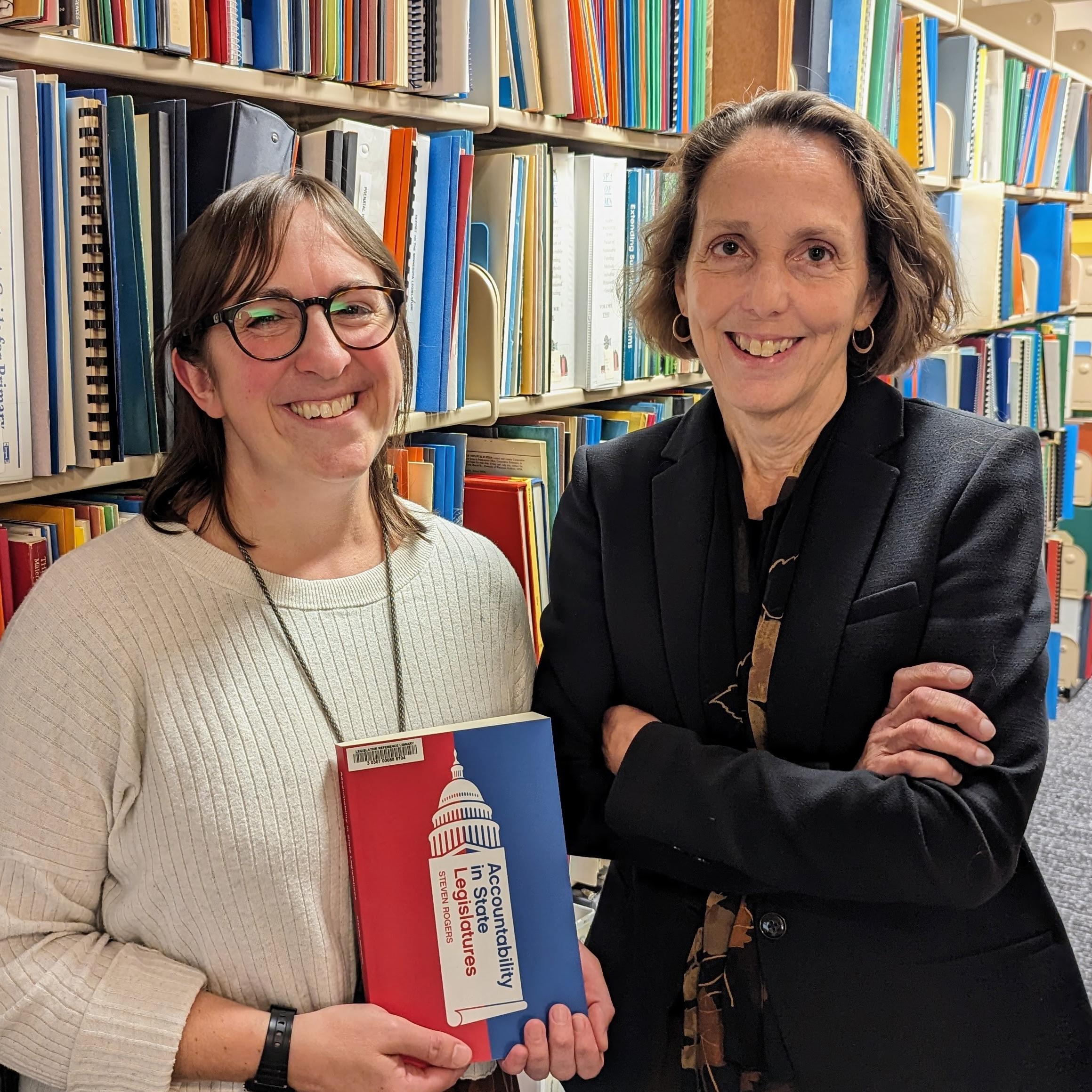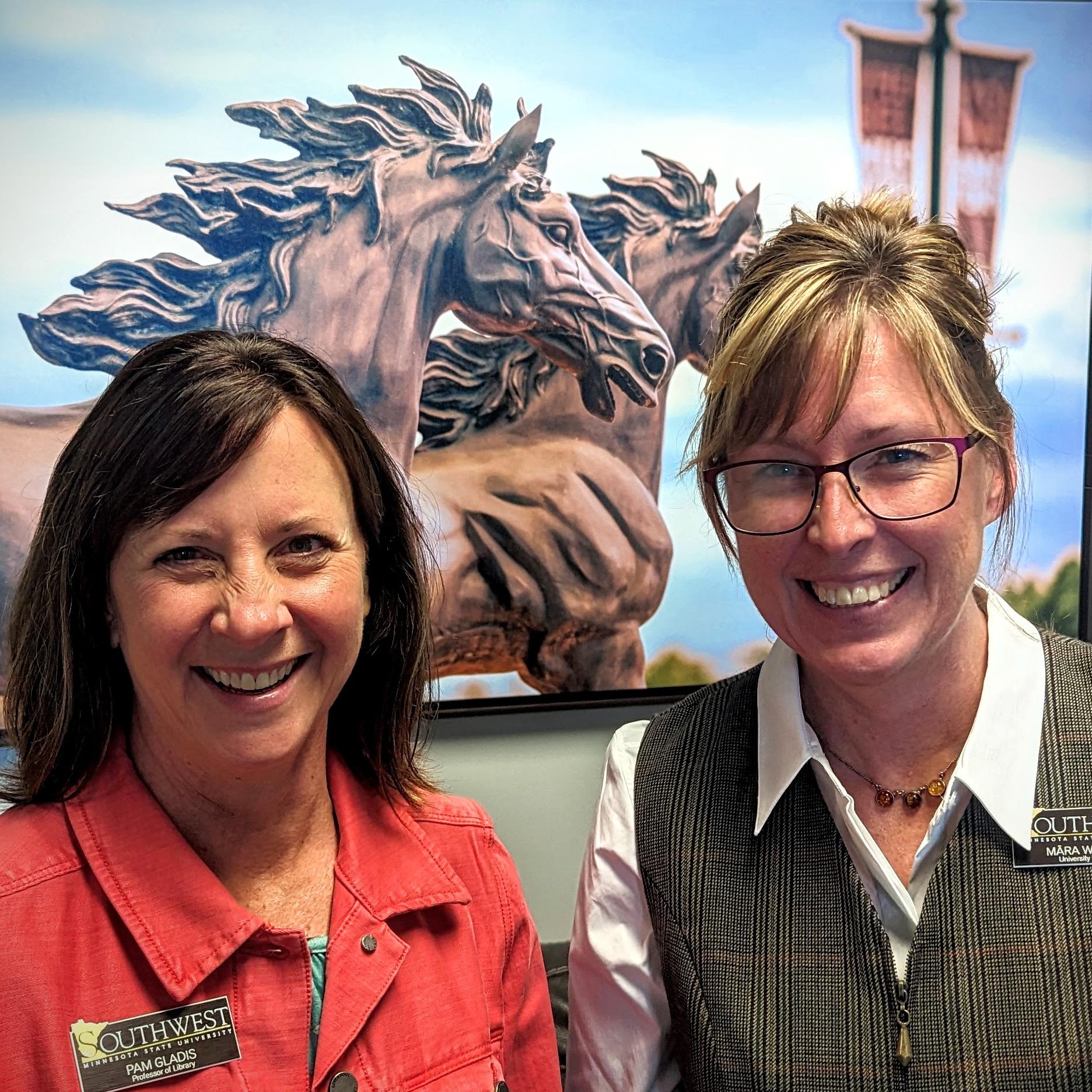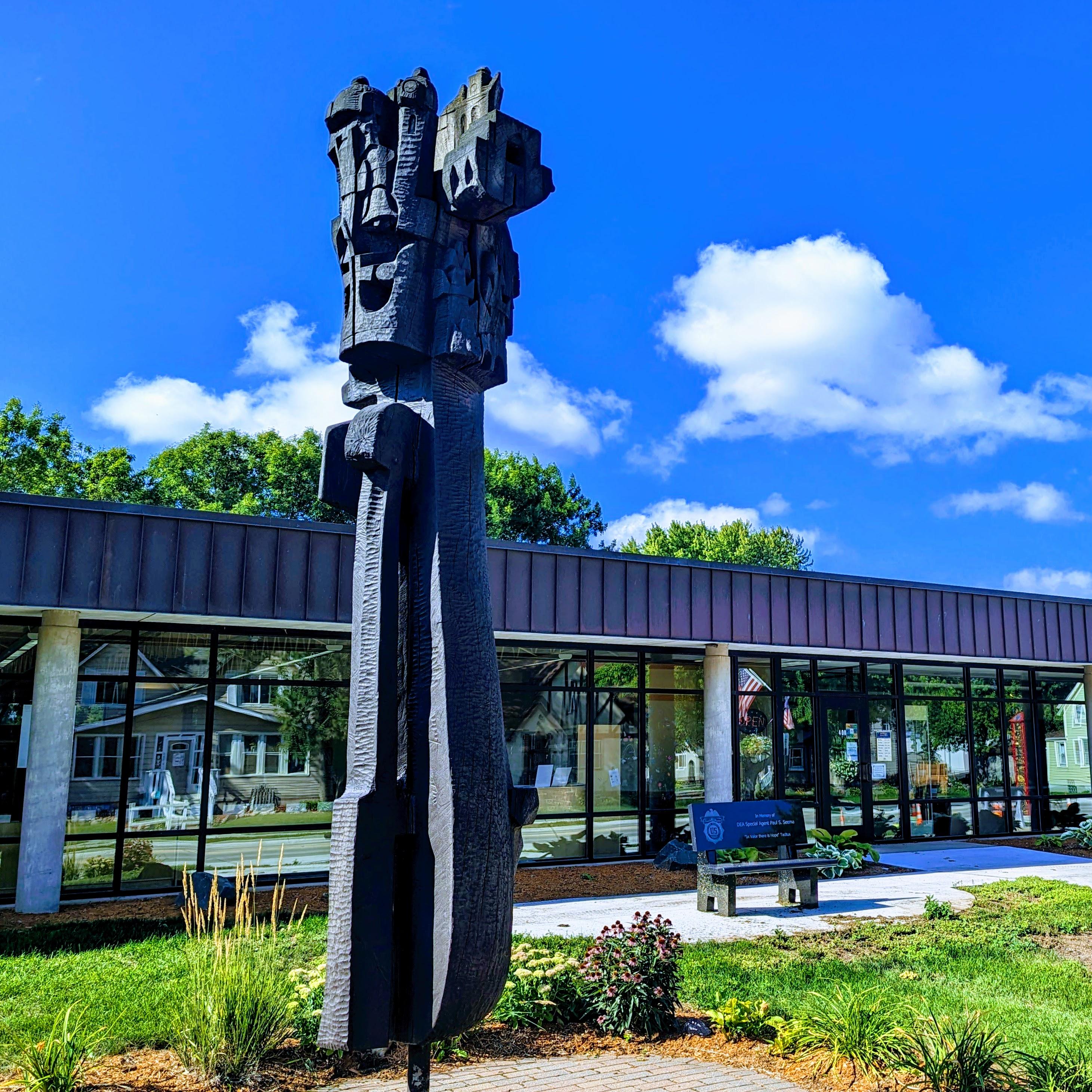by Zach Miller
Quick Summary
In honor of the 50th anniversary of the Capitol Area Library Consortium (CALCO), we are profiling a number of its members for our readers. Chris Anning's library at the Department of Revenue provides research assistance to Department employees to help them succeed in their work with customers.

The Minnesota Revenue Library provides the research assistance and resources for the Department of Revenue’s approximately 1,300 employees.
“There’s no such thing as a typical request,” says Anning. To make sure she's ready, Anning proactively tracks a wide range of topics. She tracks issues by request, too. There’s the tax policy of the other 49 states to keep an eye on. Cannabis and sports gambling are hot topics right now, too, along with retail delivery fees on goods that are delivered, rather than picked up at a store. “One of the things that makes my work so fascinating is that it gives me a window into basically every facet of the tax system,” she says. “I get to learn about everything.”
To do her research, Anning reads articles by the many journalists who cover the tax policy beat every day, all across the nation. She uses some curated tools, too, like TaxNotes.com, Law360, and Checkpoint, from Thomson Reuters. She puts all the information together in newsletters that go out every week or two, depending on the flow of news, on topics like corporate tax, sales and use tax, and property tax.
The library gets especially busy during the legislative session. Every bill that's heard in a tax committee requires a tax estimate. Last year, the Department of Revenue delivered a record 709 estimates to the legislature. Each one helps elected officials and policymakers understand the tax and revenue implications of the bills they've proposed.
Eric Willette is the Department of Revenue’s Director of Tax Research. He and his team of 25 nonpartisan analysts are responsible for most of the estimates the Department churns out. They couldn’t do their work without support from the library. “Chris helps us find the data we need to make estimates,” says Willette. “She’s also invaluable in helping us understand the historical perspective and how we got to where we are today.”
Astonishingly, Anning is the library’s only employee. She works closely with Tax Research, but she serves the entire Department. She works on site three days a week, and walks to work. By and large, her colleagues in state government work remotely. She finds that they reach out for help more often than they once did. “Before, they may have turned to their colleague in the cubicle next door to ask a question,” she reflects. “With workers disconnected from their workplace, lots of people are using the library as a portal into the office.”
Staff can and do still visit the library in person, even if Anning isn’t there. Visitors can check materials out (they use a card checkout system) and take them to their offices. They can also eat lunch or relax and read. The Wall Street Journal is available.
Even with the pandemic more or less over and the transition to hybrid work more or less complete, work life at the Department of Revenue continues to shift. The Harold E. Stassen State Office Building, where the Department is headquartered, is being redesigned, in phases. One floor has already been completely converted to hotelling spaces. Plans for the fourth floor, where the Revenue Library is located, have not been announced. While she waits to learn the fate of the fourth floor, Anning continues supporting her colleagues. When one of the Department’s units closes its space, the library absorbs its materials. “Cataloging those materials can be a challenge,” Anning admits. “There are some unique materials to handle, and a fair amount of duplication.”
Anning is proud of her career at the Department of Revenue, and believes the work she does with her colleagues is critical to creating a fair tax system for all Minnesotans. Helping a taxpayer who has come in to find help, maybe a new immigrant to Minnesota or a first-time filer, is particularly gratifying. She also supports the Taxpayer Advocate’s Office and appreciates seeing the way her coworkers so clearly care about their work.
Although she runs the library on her own, Anning stays connected to the library community. “As a solo librarian, resource and knowledge sharing is critical to my library’s value,” she says. She singled out Minitex’s Resource Sharing and Cooperative Purchasing services as particularly important. She visits her fellow CALCO librarians frequently, too. The Legislative Reference Library, State Law Library, and Minnesota History Center are all just a short walk away, and DEED Library is just a bit farther, in downtown St. Paul.
Anning attended college at St. Catherine University, where she earned a bachelor of arts degree in information management and later a master’s degree in library and information science. Her career has included stints at Mackin, Metronet, and the Hennepin County Libraries. She was working in the teen section at Hennepin County’s downtown branch when Senior Librarian Helen Burke, recruited her to government documents. From there, she moved on to the Department of Revenue. Anning’s predecessor at Revenue was Donna Davis, who was instrumental in founding the Minnesota Revenue Library.
ABOUT CALCO
Capitol Area Library Consortium (CALCO) libraries work cooperatively to promote and enhance library services in state government through unique and diverse collections of resources. CALCO strives for easy access to state government library services and resources by state employees, local government officials, Minnesota citizens, and other libraries nationwide. These are the CALCO libraries:
- Attorney General Library
- Department of Employment and Economic Development Library
- Department of Health, Barr Library
- Department of Natural Resources Library
- Department of Revenue Library
- Department of Transportation Library
- Legislative Reference Library
- Minnesota Historical Society Library
- Minnesota State Services for the Blind
- Perpich Center for Arts Education Library
- Pollution Control Agency Library
- State Law Library
- State Library Services
More from The Department of REvenue Staff
Since tax is a highly complex area we often need deep background and legislative history including social, economic, and political context from when a provision was enacted. The Revenue library (and its invaluable librarian) is our guide and resource to access that context. The library also provides access to materials from technical and popular resources that help us understand the people, businesses and issues that are subject to tax.
- Attorney, Minnesota Department of Revenue, Appeals, Legal Services and Disclosure Division
I have contacted the Revenue library many times during my career at the Department of Revenue to obtain access to information that I could not locate on my own. On each occasion, Chris Anning was able to direct me to the information I needed. In several cases, she went much further and reached out to other libraries and resources to connect me with the specific data I required for my projects. Additionally, Chris has been enormously helpful in providing my colleagues and me with very timely articles on sales tax that we would not otherwise have been aware of, especially in a remote work environment. The services of the Revenue Library add significant value to the outcomes of my work.
- Steve Krovitz, Minnesota Department of Revenue, Sales and Use Tax Division




